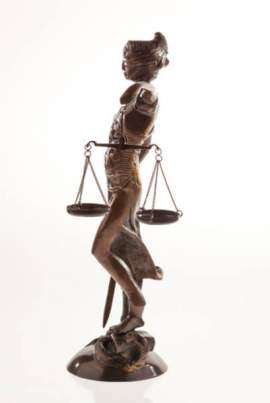
Gun Control Examples of Gun Control Efforts in American Cities

Gun control legislation is evident at the many levels of government, including federal, state, and local tiers. The federal laws are an attempt to provide for a broad collection of generalized rules and regulations that must be adhered to, regardless of other legislation imposed by other governmental function. Some state gun laws have proven to be tighter and more restrictive than federal gun control legislation by imposing certain rules and regulations.
State gun control legislation, depending on the state, may place more strict policies on firearms by expanding and using federal gun control legislation as a guide, and imposing provisions to further regulate the possession, purchasing, and carrying of firearms. Gun control politics is an issue that is becoming a more prevalent and important discussion in urban areas and large cities. Gun and gang violence is a priority to many city's legislative policies, and they attempt to find ways to reduce the crime rates associated with these types of violence.
Gun control legislation is often the first option employed or considered by cities because of the association gun control politics has made between the availability of firearms and violent crimes; the logic employed by gun control enthusiasts is that the more firearms and guns available--legally or illegally--the more likely crime rates will increase. In cities where gang and gun violence are a predominant concern, certain cities will impose their own gun control legislation in to address the problem that may further restrict firearms by adding or adjusting the state laws.
A excellent example of such a case is the city of Los Angeles. L.A. has become quite notorious for its gang violence for decades. Los Angeles and its surrounding urban areas seem to be plagued by this problem more so than any other city in the United States. Southern California being a veritable hot bed for illegal immigrants and there seems to be an unfortunate correlation between their inability to obtain successful or fulfilling jobs and careers. Gangs will often offer what seems to be a great opportunity to make grand amounts of money with minimal effort and time, albeit through illegal means.
Gangs will often recruit young people, specifically those of immigrant families because they are so desperate to improve their financial situations; when a family is starving, sometimes individuals will go through extreme lengths to provide for them, and gangs deceivingly so provide for a quick route to do so. L.A. having such a predominant gang and gun violence problem, it has provided for stricter gun control legislation in an effort to help curtail crime involving firearms and gangs.
It was recently enacted by the Los Angeles City Council to place new requirements on ammunition sellers and the ban of certain types of military style ammunition. The ban applies to the sale of .50 ammunition, which capabilities are beyond armor piercing.
The sale of ammunition is now restricted and limited to purchases done in person, eliminating the possibility of acquiring potent bullets from other states or countries. Gun dealers are also required to provide for reports and records of all their inventory twice a year to local law enforcement departments, in hopes of being able to keep a better track of what kind of individual is purchasing firearms and ammunition. It is no surprise that gun rights activists have opposed the new regulations, with the National Rifle Association fronting the movement and most likely bringing the issue to court.
Gun rights activists argue that these new laws are an unfair inconvenience to rightful firearms owners and users, and that imposing stricter laws will not reduce crime; the new laws will not deter criminals from acquiring guns because if they can not do so legally, they will do so illegally. These new laws will be used to reinforce California gun control legislation already banning armor piercing ammunition and restrictions on handguns, such as the one-per-month clause and the controversial inclusion of microstamping technology to be used on all semi-automatic handguns.
Microstamping consists of a cartridge being imprinted with a unique code each time the handgun is fired, thus being able to possibly trace the gun as well as the user. L.A. is going to certain extremes in order to help curtail the gun and gang violence problem, and stricter gun control legislation seems to be the most viable and logical answer at this time.
Another city that employs gun control efforts at a higher level is Washington D.C. D.C is notorious for having some of the worst crime rates in the country, being over three times the national average for all violent crimes. D.C. was dubbed as the "murder capital" of the United States because of its extreme crime rates in the the 1990's. D.C. turned to gun control legislation as a way to help reduce violent crime, and it adopted some of the strictest laws in the country.
Gun control politics went as far as banning handguns within the capital's city limits, which was only recently overturned. The courts ruled that the provision violated the Second Amendment right for individuals to bear and own firearms. Though this particular law was overturned, D.C. still has strict policies regarding handguns. Notably, the carrying of firearms in the capital is strictly prohibited, regardless of concealed or open carry.
Registration of all types of firearms--shotguns, rifles, and handguns--is mandatory for all gun owners and gun purchases. The capital also employs a strict assault weapon ban as well. D.C.'s gun and violent crime rates were a result of a surge of crack, causing a sort of epidemic of the drug in the early 1990's. Gangs and individual criminals began to acquire more and more firearms as the drug market became more competitive, and as a result, more violent crimes were committed with use of firearms.
Law enforcement agencies went as far as launching a gun-violence crackdown operation codenamed Ceasefire, in nearly 300 handguns were seized in the first months of the project. Even though gun control legislation in the nation's capital are notoriously among the most restrictive, firearms will still landing in the hands of criminals by way of purchasing them in neighboring states such as Maryland and Virginia. This might have led to D.C. imposing a strict regulation on the transporting of firearms in vehicles, which is prohibited.
The only exception relates to those traveling through the capital, in which case the firearm must be unloaded and secured in a case and transported in the the trunk of the vehicle. Also, those transporting a firearm through the city limits are not allowed to stop and must travel straight through as a provision stated by this law. Gun rights activists denounced these laws are being a severe hindrance and inconvenience to lawful gun owners.
Though its difficult to relate the effect that gun control legislation has had on gun and violent crimes, the rates have dramatically dropped from the early 1990s. By 2005, the crime rates--including homicide, and other violent crimes--had reduced by nearly 50 percent. Whether the drastic change is an immediate result from gun control legislation is hard to determine and an arguable point, it can at least be credited with impacting the change at a minor level.
NEXT: Gun Control Inclusion into Law Overview



















